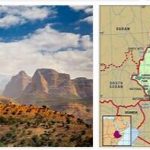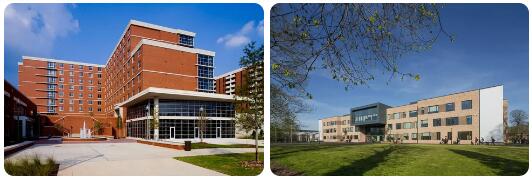Facts of Nicaragua
Below you can get important information in connection with your trip to Nicaragua – for example about visa rules, vaccinations and travel insurance.
- Language: Spanish
- Capital: Managua
- Population: 5, 8 mill.
- Religion: Roman Catholicism and Protestantism
- Currency: Cordoba
- Surface: 130,000 km2
Worth knowing
Before departure
About a week before departure, you will receive your final departure letter. The departure letter contains important information about the place and time of departure. It also contains a telephone and address list of the hotels we use on the trip and the tour guide’s name.
Travel insurance
Since the general health insurance does not cover the cost of travel home and care in Nicaragua, you should definitely take out travel insurance that covers both the cost of care and any repatriation. Furthermore, we recommend that the insurance covers luggage in the event of damaged or lost luggage. Albatros Travel cooperates with Gouda Reseförsäkring and we are happy to help you take out travel insurance.
Hand luggage
We recommend that you pack the most important things in your hand luggage, so that it is easily accessible should the rest of your luggage be delayed. This applies to e.g. valuables and important medicine. If you bring prescription medicine that you need to take during the flight, the name of the prescription and flight ticket must match.
Time difference
The time difference between Sweden and Nicaragua can vary, depending on Sweden has summer or winter time:
Summer time – 7 hours
Winter time – 8 hours
Transportation in Nicaragua
Bus The
buses in Nicaragua do not meet the standard we are used to in Europe. However, our buses have a good standard and air conditioning.
Flights
On our round trips in Nicaragua, we often fly longer distances with domestic flights. Prior to such flights, the Swedish tour guide informs about the time of departure and what applies at check-in at the airport.
Price level
It’s pretty cheap to go out and eat in Nicaragua. You can get a lunch for SEK 50-70 and a dinner costs around SEK 80. Including drinks, you can manage nicely for around SEK 220-240 a day. Souvenirs and crafts are available in all price ranges, but much is relatively affordable.
Tip
On our travels, you come into contact with everyday life in Botswana, including conditions that may not appeal to you, or that you are not used to. Take for example the system of tips. In many countries, tips are a more organized phenomenon than we Swedes are used to, and you are expected to leave some tips to local guides, drivers and safari guides / rangers during the trip, as the salary in the service industry is usually based on that. We enter an amount in our travel program so that you can count on this when you make up your travel budget at home. The price of the trip does not include the cost of tips as you decide how much you want to give during the trip. The tip system is part of the culture you visit and something you should therefore respect. We want to emphasize that everyone decides for themselves how much they want to give in tips.
In practice, it is possible to arrange for the tour guide to collect money for the entire trip before departure and ensure that the right people get what they need. An envelope will then be sent around the bus so that those who want can leave tips.
In Nicaragua, bars, cafes and hotel restaurants often add a 10-15 percent service charge to the bill. In that case, it appears from the bill. In addition, it is common to add an additional 10% to the bill. Luggage carriers also expect some tips.
Currency and credit cards
In Nicaragua, the currency is called córdoba. You can advantageously bring USD, which you can exchange to córdoba when you arrive. Very often you can also pay with USD in Nicaragua. You often get a change in the local currency and in that way you often get a local currency without having to change. It is usually not possible to switch to córdoba at home in Sweden. If you bring USD, you should be careful not to bring banknotes larger than $ 20. It is usually not possible to pay with larger banknotes, as they are often counterfeit.
Visa cards can be used at most restaurants, hotels and in larger stores. You can also withdraw money at ATMs. MasterCard and American Express can also be used, but are not as widespread as Visa.
Electricity
Nicaragua has 110 volts AC, 60 Hz. It is not the same socket as at home in Sweden, so we recommend that you bring an adapter.
Telephone and internet
According to allcitycodes, the international country code for Nicaragua is 505. It is expensive to call home from Nicaragua, so you should check with your mobile carrier regarding coverage and rates for calls from Nicaragua.
Internet cafes are now available in most cities, but we know from experience that it can be difficult to have time to visit such places other than during your own time or completed day program. Most hotels in Nicaragua have Internet service, but expect a slower connection compared to home. Some hotels charge extra for this.
Drinking water and hygiene
In Nicaragua, hygiene conditions are slightly worse than in Western Europe. Hotels and larger restaurants, on the other hand, usually meet modern / western standards. Out in the city and in the country, you can count on going to so-called pedal toilets, and that there is often a lack of toilet paper. The standard of public toilets or in the countryside can thus be relatively primitive. Bring your own toilet paper, intimate napkins and perhaps hand sanitizer (available at Swedish pharmacies, for example), so you will not be as dependent on access to water.
All water that you want to use to brush your teeth, make ice cubes or drink should be bottled water or boiled water from the tap.
Food and drinks
In Nicaragua, a lot of rice and beans are used in food. You often take a tortilla that you roll the food in, instead of a knife and fork. You also eat a lot of seafood and it is popular to buy grilled corn on the cob in various fast food restaurants.
Customs and traditions
Nicaraguans are generally friendly and open. If you are addressed with “Mi amor” then this is completely normal, this is how you address someone of the opposite sex in Nicaragua.
Photographing
It is not allowed to photograph military installations. Otherwise, the rule of thumb is to ask before photographing someone.
Smoking
Smoking is prohibited during all flights and bus transport. Smoking is also prohibited in most restaurants and hotels. If you are unsure, consult your tour guide about current smoking restrictions in Nicaragua.




